June 8, 2025 | 10:57 GMT +7
June 8, 2025 | 10:57 GMT +7
Hotline: 0913.378.918
June 8, 2025 | 10:57 GMT +7
Hotline: 0913.378.918
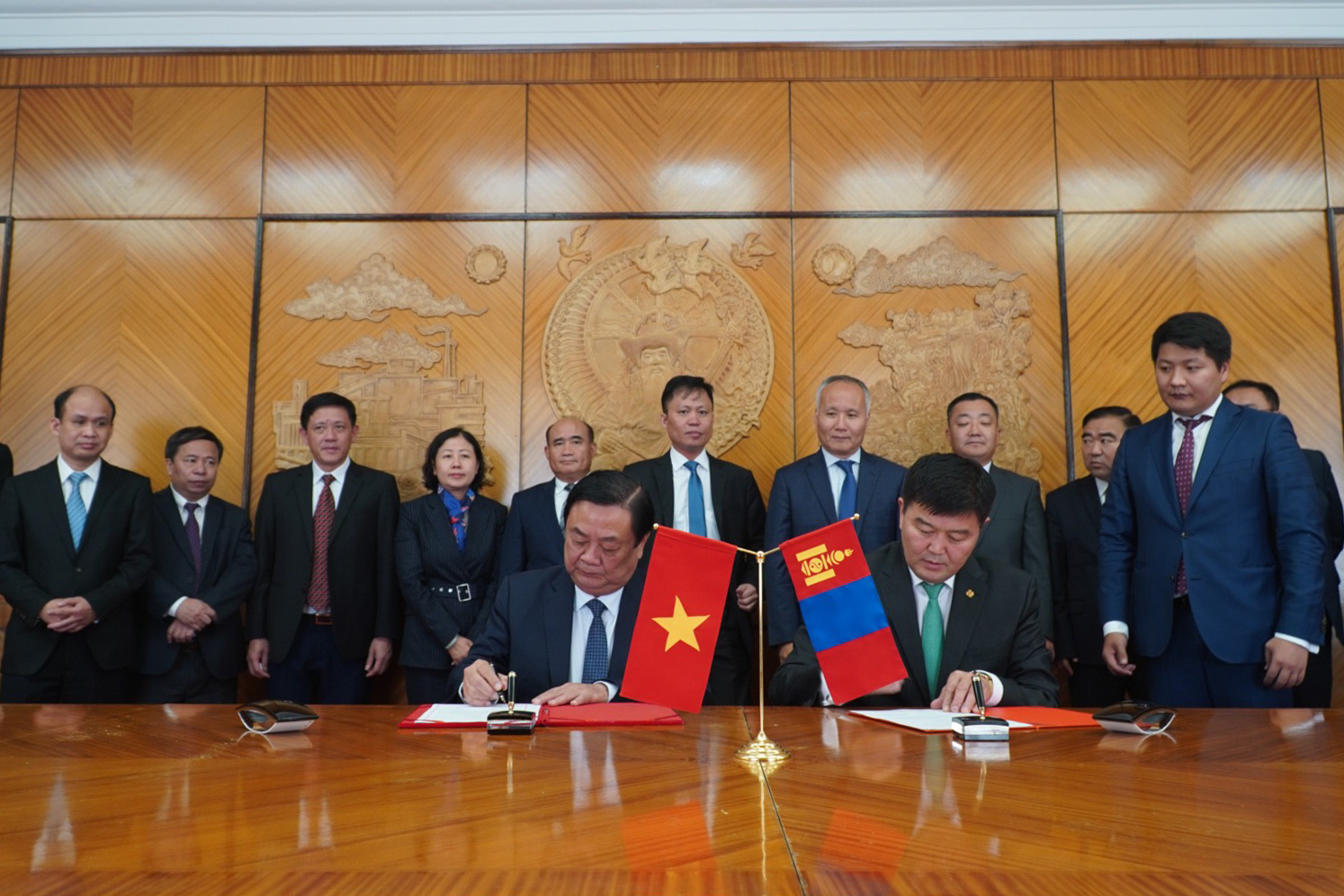
Minister Le Minh Hoan and Minister Khayangaa Bolorchuluun signed the first Memorandum of Understanding on Agricultural Cooperation between Vietnam and Mongolia. Photo: Anh Tuan.
Leading the Inter-Ministerial Mission of the Vietnam Sub-Committee in the Vietnam-Mongolia Intergovernmental Committee on Economic, Trade and Scientific-Technical Cooperation to Mongolia to organize the 18th Inter-Governmental Committee meeting, Minister of Agriculture and Rural Development Le Minh Hoan worked and signed the first Memorandum of Understanding on Agricultural Cooperation with the Mongolian Minister of Food, Agriculture and Light Industry, Khayangaa Bolorchuluun.
Agricultural cooperation plays an essential role in the relationship between Vietnam and Mongolia, especially when the world and the region face food security challenges. Vietnam and Mongolia both have advantages in agricultural production.
It is also where the two sides can complement each other and take advantage of each other's strengths. The two sides' agricultural, forestry, and fishery products are complementary, not competing. Vietnam has strengths in rice, industrial crops, aquatic products, timber and wood products, and tropical fruits. In contrast, Mongolia has strengths in livestock and livestock products.
The Mongolian Minister of Food, Agriculture and Light Industry said that in 2022, Mongolia would have a herd of 67.3 million cattle and 24 million young. The number of livestock that can be commercially exploited annually is over 20 million heads.
In addition to meat, Mongolia annually produces 10,000 tonnes of goat cashmere wool, 37,000 tonnes of sheep wool, and more than 1.3 million cow and horse hides. The livestock of Mongolia uses traditional grazing methods, which are naturally organic.
Therefore, Mongolian meat products are exceptional. Minister Khayangaa Bolorchuluun expected agricultural cooperation, especially cooperation in trade and investment between Vietnam and Mongolia, to be strengthened in the coming time.
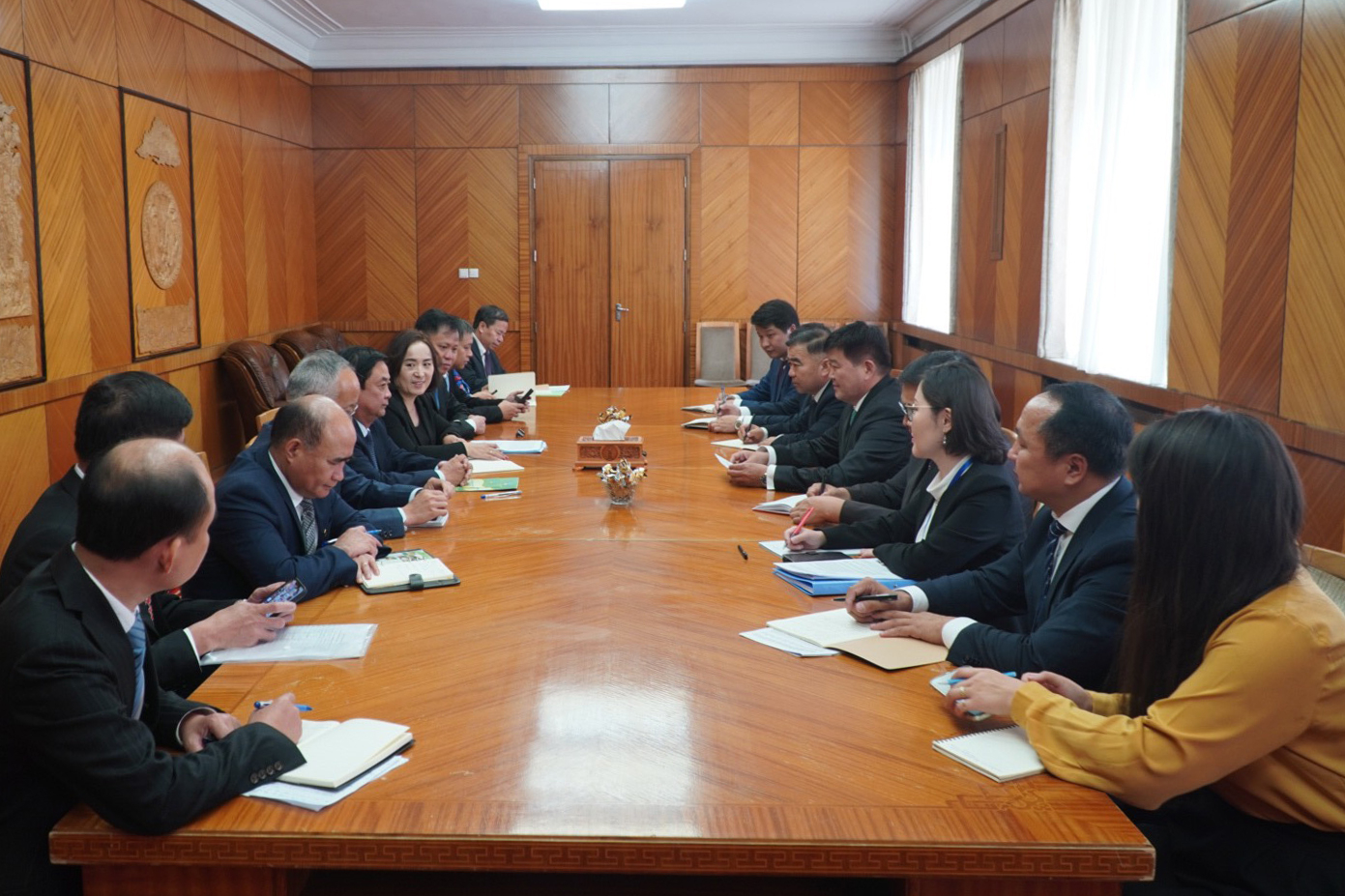
Talks between the Ministry of Agriculture and Rural Development of Vietnam and the Ministry of Food, Agriculture and Light Industry of Mongolia.
Minister Le Minh Hoan shared: "In today's world full of changes due to the Covid-19 pandemic, conflicts between countries, and other potential uncertainties, relations between countries need a new approach. In which all countries need to diversify products and diversify markets. With the traditionally friendly relationship between Vietnam and Mongolia for 68 years, the two countries need to do more to develop commensurate economic cooperation.
Agriculture in Vietnam and Mongolia still has a lot of potentials to exploit each country's strengths and markets. Accompanying the Minister's delegation were leaders of two specialized units, the Department of Livestock Production and the Department of Animal Health, to discuss Mongolia on cooperation and removing barriers, and creating conditions for livestock products of Mongolia.
To promote trade in general and agriculture in particular, the two sides need to remove the most significant barriers, namely transport and logistics. In this regard, the two sides discussed within the framework of the Intergovernmental Committee and other bilateral mechanisms to seek solutions to open up the agricultural road, like the Silk Road that was formed 2,000 years ago.
During the working visit of the Vietnam Inter-Ministerial Mission to the Mongolian Ministry of Food, Agriculture and Light Industry, Minister Le Minh Hoan and Minister Khayangaa Bolorchuluun signed the first Memorandum of Understanding on Agricultural Cooperation between the two countries. The first Memorandum of Understanding is expected to sublimate agricultural cooperation between the two sides in the upcoming time.
Translated by Ha Phuc
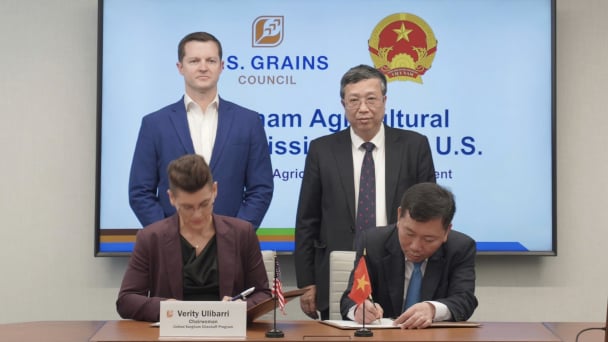
(VAN) The U.S. Grains Council signed a 5-year cooperation agreement with the Partnership for Sustainable Agriculture in Vietnam (PSAV) during MAE's agricultural trade mission.
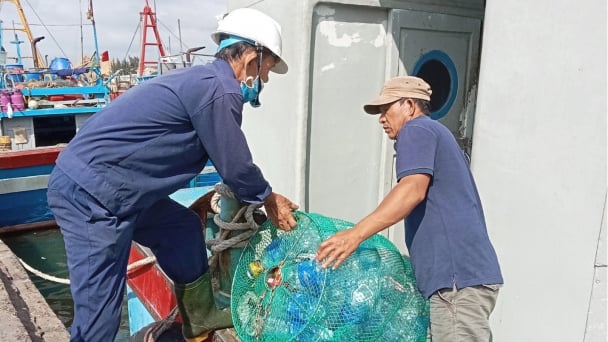
(VAN) Vietnam Agriculture and Nature News interviewed Mr. Vu Thai Truong, Acting Head of Climate Change and Environment at UNDP Vietnam on the occasion of World Environment Day (June 5).

(VAN) On June 5, Deputy Minister of Agriculture and Environment Phung Duc Tien held a working session with the Directorate-General for Maritime Affairs and Fisheries of the European Commission (DG MARE).
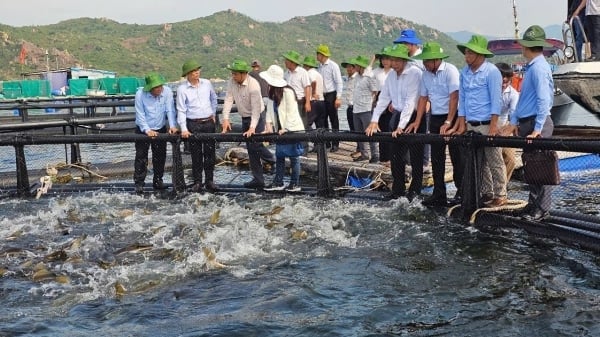
(VAN) According to Prof. Dr. Mai Trong Nhuan, former Director of Vietnam National University, Hanoi, the national ocean spatial plan is devised to guide the ocean economy toward achieving its key objectives.
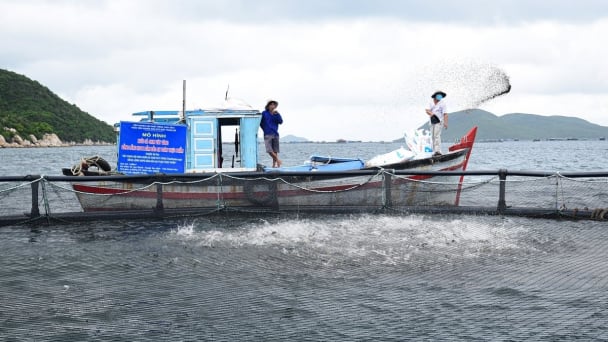
(VAN) Vietnam’s aquatic resources decreased from over 5 million tons in the period 2000-2005 to just over 3.9 million tons in the period 2016-2020.
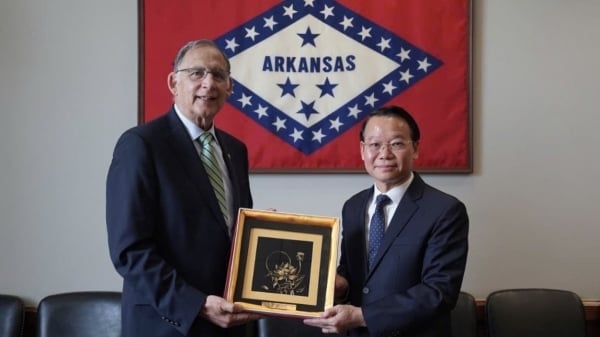
(VAN) The U.S. Congress recognizes Vietnam's role as a reliable and dynamic economic partner in the Asia-Pacific region.
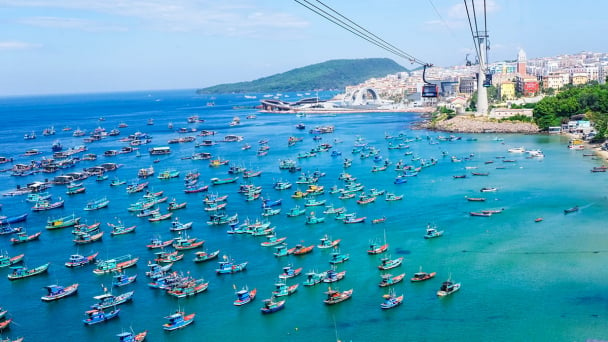
(VAN) Vietnam Sea and Island Week 2025 is a powerful call to action for connecting technology and unlocking policies, aiming towards a modern, sustainable blue ocean.